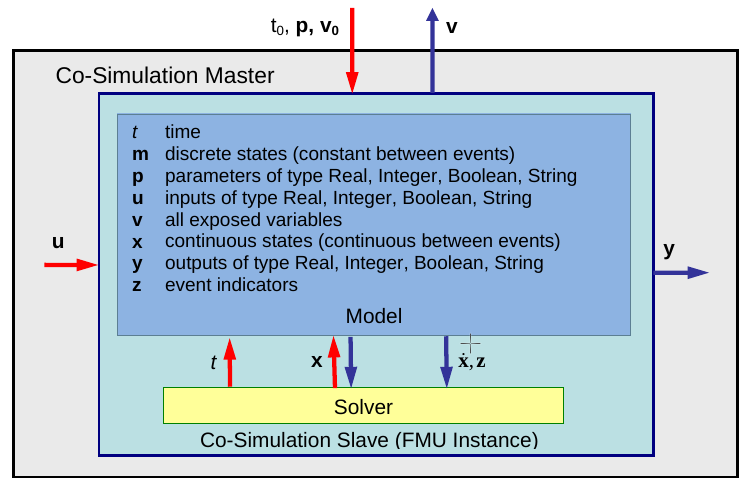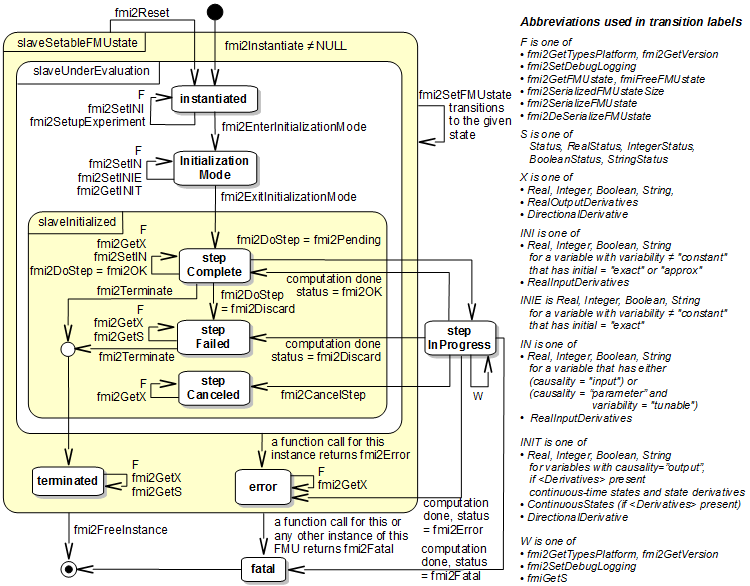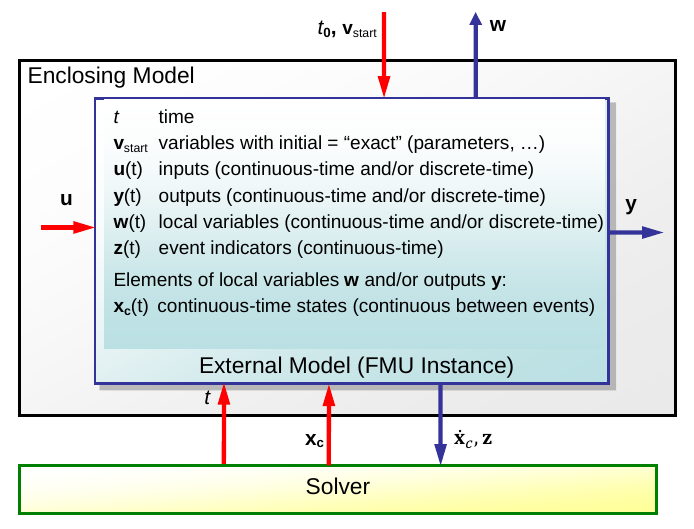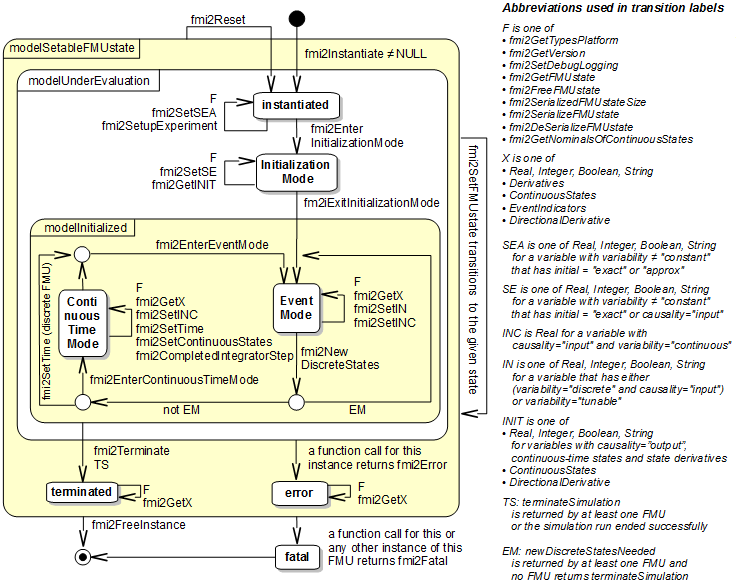Hi all,
I was planning to write the next blog post only after I figured out completely how Scilab integrates with Modelica as of now. However, exploring all the necessary code paths was taking more time than expected, and I would like to conclude the Community Bonding Period with a new update.
So I’ll skip that a little bit and, as promised, get into more detail about the integration possibilities for OpenModelica’s OMCompliler.
If you remember well, It’s a know fact that I have a soft spot for standards… Well, at least the ones which don’t fall into this category:

(Mandatory XKCD reference)
“Competition breeds excellence”, but sometimes reaching a consensus about a general way to do things, leaving room for evolution and specifics variation, sounds like a good thing.
But why are you taking about it… again ? Isn’t Modelica or standard already ?
Yes, but not only that.
The Functional Mock-up Interface
Typical Modelica applications are useful to perform simulations for a given dynamic model, but usually one doesn’t want to stop there, and wishes to use results from the same calculations in e.g. real-time control. Having to reimplement all mathematical expressions for the final use case demands additional coding and review work to ensure that both models (Modelica application’s and hand coded one) behaviour match exactly.
Wouldn’t be great having the ability to export the original model in a self-contained format, easily integratable with target applications ?
Well, some Modelica software do precisely that.
Neat ! Wouldn’t be also great if there is and standardized way to do it, so that you could switch between runtimes exported by different programs, and choose the one that works best for you ?
Well, there is. It’s called Functional Mock-up Interface (FMI) specification (currently at version 2.0), for generation of interchangeable C code.
Gladly, OpenModelica’s OMCompiler supports it, allowing input .mo files to be translated to, among other formats, Functional Mock-up (FMU) packages, which include source code and binary for a library implementing processing logic and exposing a FMI2 interface, as well as a model description XML file.
Considering a Model.mo input file, one of the simplest ways to generate FMI2-compliant code would be running the command:
$OMCOMPILER_PATH/omc Model.mo –simCodeTarget=sfmi –simulationCg
that generates files Model_FMI.cpp (ready to be compiled to a library or directly added to main code, along with FMI2 headers) and modelDescription.xml.
In addition, FMI2 specification defines 2 exporting modes for packages: Co-Simulation (Fig. 1,2), which includes code for model simulation solver/integrator, and Model-Exchange (Fig. 3,4), which ships just the bare minimum model code, leaving integration processing to the calling application.

(Co-simulation library interface diagram)

(Co-simulation library operation state-machine)

(Model Exchange library interface diagram)

(Model Exchange library operation state-machine)
At first, it seems like a Co-simulation model is always prefereable, because of its simpler interface. However, its integration methods are limited to basic ones, and as Scilab/Xcos already uses ODE solvers (like Sundials IDA) during simulations, the Model Exchange model becomes more appropriate, because solvers can be shared consistently and changed dynamically across all model blocks.
Current Scilab’s modelicac compiler works with its own interface, and Xcos blocks have incomplete support to FMI calls, so they’ll need to be modified. The extra work may be worth it, though, as adopting FMI2 for setting and getting model variables within Xcos environment has the benefit of allowing, in future, different Modelica implementations with FMI support to be easily integrated as well. Maybe even current Modelica implementation could be adapted to use the FMI2 API entirely, reducing the amount of code to be maintained.
That’s it for now, folks. I don’t know if I was careless and didn’t interact properly with my mentors during Community Bonding, so I hope that doesn’t prevent me for being approved in this first phase of the program, and we are able to continue this project until its completion.
See Ya !